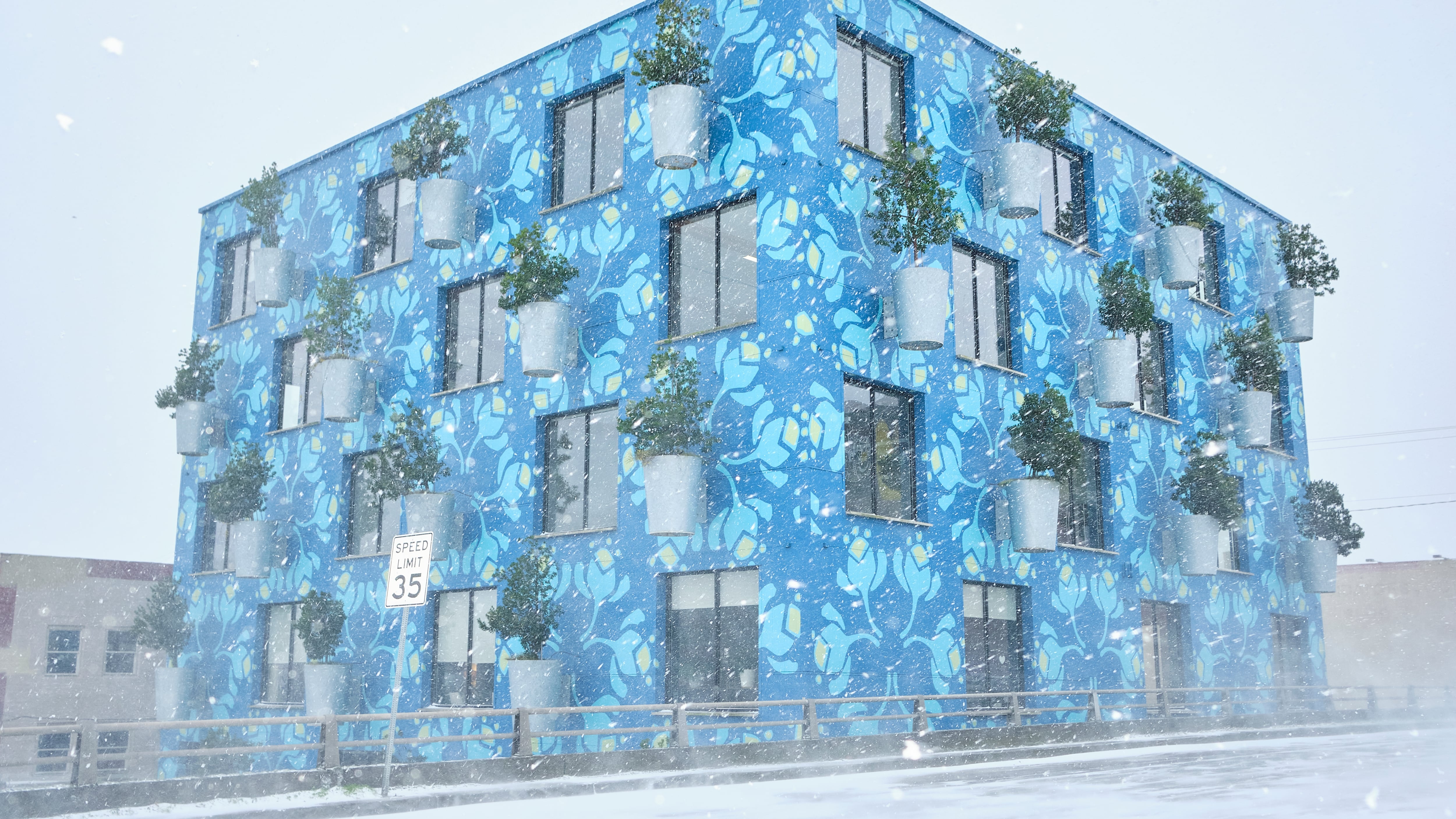One of Portland’s most distinctive office buildings will go on the auction block Feb. 5. The Tree Farm building, located next to the Morrison Bridge on the east side of the Willamette River, features 56 potted strawberry trees affixed to its blue floral-print exterior.
Portland-based Guerrilla Development, which specializes in whimsically designed structures, completed the Tree Farm in 2020, two months before the pandemic killed demand for office space. The building’s financial struggles show that office space, even in the hippest buildings, remains overly abundant. The Tree Farm is also the second high-profile building to go up for auction in recent weeks, following Lolo Pass, a chic hotel and hostel now slated to become a residential drug treatment facility.
According to the auction firm Ten-X, the six-floor, 40,026-square-foot office building is just 39.35% leased.
Last fall, Guerrilla Development’s principal, Kevin Cavenaugh, surrendered the building to his lender, California-based Tree Farms Office Holdings LLC.
“This is the first time a bank has foreclosed on me, and it’s just math,” Cavenaugh says. “I don’t think anyone foresaw what the pandemic was going to do to office buildings, specifically in Portland.”
Cavenaugh says he is working with a prospective buyer for the Tree Farm. “It’s like when you’re moving and you need to rehome a pet,” he says. “I just want them to go to a good home.”
Cavenaugh, long recognized as one of the city’s most creative developers, sold two other distinctive Guerrilla properties in the past two years, without fanfare. The Fair-Haired Dumbbell—the twin white buildings decorated with colorful squiggles at East Burnside Street and Northeast Martin Luther King Jr. Boulevard—sold in December 2022. Cavenaugh also says he sold his ownership stake in The Zipper, a food court at Northeast 28th Avenue and Sandy Boulevard, to Chip Addabbo, co-owner of The Zipper’s resident bar, Paydirt. (Addabbo didn’t respond to a request for comment.)
“I view [Paydirt’s owners] as the parents of the building. They really look out for everyone in a really beautiful way,” Cavenaugh says. “Tenants typically don’t have many chances to own their property; they just pay a rent check to their landlord forever. It’s much more empowering for tenants to own their buildings.”
Like many developers, Cavenaugh creates separate limited liability companies for each of his projects. He says the Tree Farm’s foreclosure won’t affect any of Guerrilla Development’s other projects, including a low-income housing building and a project under construction on Sandy next to Guerrilla Development’s office.
“The Tree Farm is its own standalone company. It failed financially, but it won’t take everything else down,” Cavenaugh says. “It does hurt to have a foreclosure on my résumé. For future projects, banks will look at me a little more warily, but they also can look at other office buildings in Portland in the pandemic and they can say, ‘We’ve seen a lot of this, sadly.’”
He doesn’t regret developing the project.
The Tree Farm “makes people smile and, long after I’m dead, it will make people smile,” Cavenaugh says. “I don’t care how much money I have. That’s shrinking by the day. But there’s a permanence to my buildings, and I’m proud of them. They’re my babies, I feel like I birthed them. But someone else will own them.”
